On Tuesday 23 September, the Right to Remain team returned to Liverpool for our Solidarity Session: Connection, Safety and Hope. We wanted the session to give our community space to think about how we build resistance against enforcement reflecting on what we have learned from acts of solidarity with people who are affected by the Hostile Environment, most recently our community member Fatou, who was detained for over two months and threatened with removal three times. The session was also an opportunity to discuss what safety means and what practical steps we can take to increase our sense of safety, in order to nurture our hope.
We were hosted by our friends at 4Wings, a local organisation that offers a supportive and safe environment to socially excluded and marginalised women who have experienced trauma, abuse and displacement. The sun streamed through windows lined with artwork created by 4Wings members during the Free Fatou campaign. It felt significant to gather here: Liverpool is where Fatou was detained in April, and the 4Wings office was the very place where she was first welcomed back into the community following her release in June.
We began the day by reflecting on how each of us became involved in the migration justice movement in a discussion facilitated by our Organiser, Maggy Moyo. Many spoke from their own lived experience, while others described witnessing the mistreatment of migrant communities in their neighbourhoods or workplaces, or being motivated by the struggles of extended family members.
The conversation soon turned to how people are coping in the current climate. Feelings of anger, fear and uncertainty were shared openly. One voluntary sector worker spoke about being asked: “Is it safe for me to go outside for my hospital appointment when there are angry people waving flags?” The weight of having to answer that question, to either offer reassurance or caution, shows the impossible choices people are facing, and how deeply the hostile environment shapes both individual lives and the work of our organisations.
Every person in the room was given time to respond and was truly listened to. Many later said that being heard in this way felt therapeutic, because too often such conversations are rushed or silenced. What was most powerful was the way people with lived experience trusted the space enough to share both their vulnerabilities and their determination to keep resisting and supporting others. Even our newest member, who had never been involved before, committed to becoming an ally. These moments of courage and solidarity were a vital part of the day’s learning.
Our Director, Eiri, then shared Fatou’s story: from her detention and three attempted removals, to the grassroots actions and legal interventions that stopped her deportation. Local groups, including 4Wings and Refugee Women Connect, organised a march to the reporting centre in Liverpool and organisations and community groups across the UK promoted our petition to Free Fatou, which gathered over 26,000 signatures. This was solidarity in action and proof that connection and persistence is how change happens. The fact that Fatou was active in Liverpool and was connected with so many different groups and networks – the connections she cultivated herself – was the engine for the Free Fatou campaign.
As one proverb shared in the room reminded us: “Rain does not fall on one roof alone.” When Fatou was released, her first concern was the women she had met who continue to be held in immigration detention. A 4Wings volunteer also offered her own story. She shared how she had been reassured that she was “safe” to report at the Home Office and that she would not be detained because she was a recognised victim of trafficking. By the Home Office’s own policy this should be the case, but when she went to report she did not leave the centre. She was detained for one month. The words she spoke will resonate with many: “one month of detention for a life-time of trauma”. She was released a day before her planned removal and was told by the Home Office to return to reporting the day after her release. Two years later, she tells us how she still has to report every fortnight. While the pain of this experience remains, she shared her determination to share her experience so others understand the reality of the system.
Making the most of the late-summer sunny vibes, we shared an indoor picnic of quiche, sandwiches, fruit, pastries and crisps to a soundtrack of Bob Marley, laughter, and chatter. With 15 participants, this session was smaller than our usual gatherings, creating space for deeper conversations and new connections. One pair left declaring they were sure they would be friends beyond the session.
After lunch, Ciiku, Co-Founder and Director of 4Wings, grounded us in the role of community in resisting the hostile environment and sustaining one another through it.
The afternoon turned to practical skills. Together we worked through scenarios, practising how to use our practical safety guidance amid far-right violence in real-life situations. After pausing to take some grounding breaths together, we moved on to a second exercise: what happens when we receive the phone call that someone has been detained.
Through this activity, we stepped through the first 24 hours after detention asking how we steady ourselves, how we show solidarity, what information we need in that first phone call, and what actions we can take both for the person detained and for ourselves as a community. We also reminded ourselves of the key role in preparing our community and the importance of speaking about detention and raising awareness of the harm caused by stripping someone of their dignity and holding them in prison-like conditions for no reason other than their immigration status. (We now have handy leaflets on immigration detention – please get in touch with us if you want them!)
The message across both exercises was clear: we do not find safety alone, and we cannot fight detention alone. Safety is something we build together. Resistance is something we do together. No one is coming to save us: we must educate ourselves, stay connected, and act in radical solidarity. This is what we learnt from Fatou’s struggle and from those who continue to resist.
We also reflected on the “homework” of grounding. These moments, whether far-right mobilisation or another cruel change in immigration policies, are designed to create panic and to exhaust us. The harm is real, and we must name it, but our strength lies in refusing to be swept up in that panic. By practising calm and resilience, we resist the system’s attempts to destabilise us and instead show up steady, clear-headed, and strong for our communities.
We were also honoured to be joined by Boucka, one of the original These Walls Must Fall campaigners and who now leads VVIDY (Voice of the Voiceless Immigration Detainees in Yorkshire). His presence, steady, calm, and resonant, offered a moment of tribute to Dr Pious Nyandoro, whose recent passing reminds us of the fragility imposed by the immigration system. Boucka’s powerful words stayed with us as he posed the question: “What do you do in the face of such immense pain?”
It was a fitting close to a day that returned again and again to themes of connection, care, and the power of community. In Liverpool, we were reminded that solidarity is not abstract. It is something we build daily through stories, friendships, grounding, and action.
Eiri closed the day with a quote from the legendary Audre Lorde: “You become strong by doing the things you need to be strong for. This is the way genuine learning takes place.”
Together with our friends and allies in Liverpool and beyond, we are getting ready for the National Day of Solidarity to End Immigration Detention. We hope you can join us!

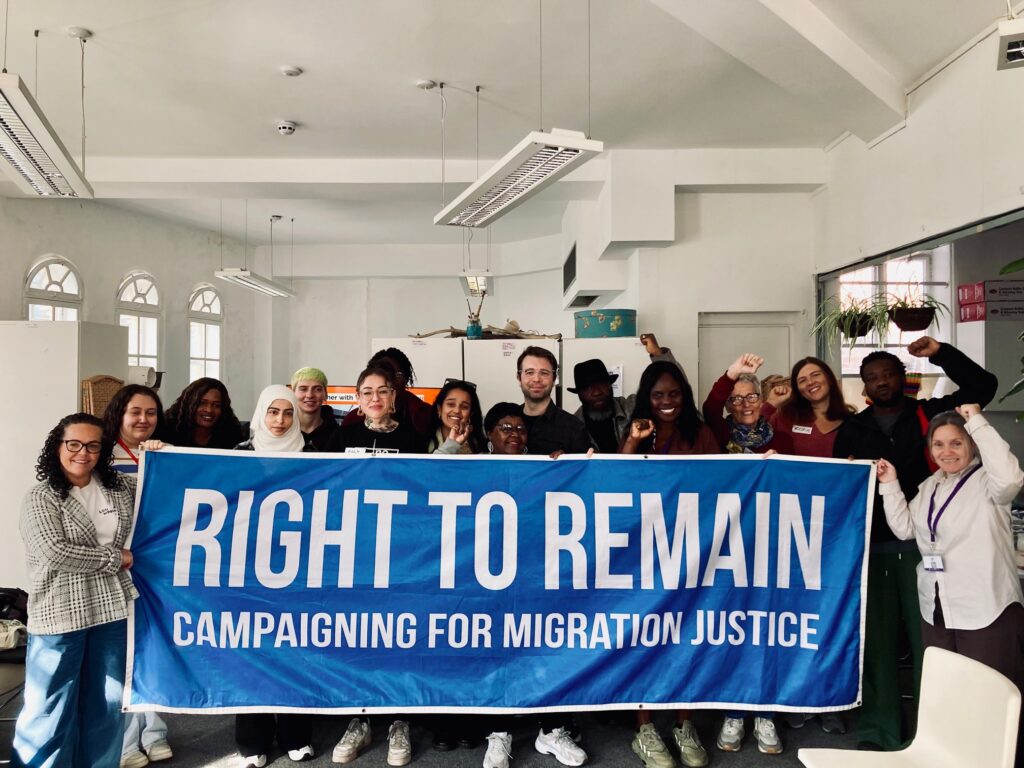
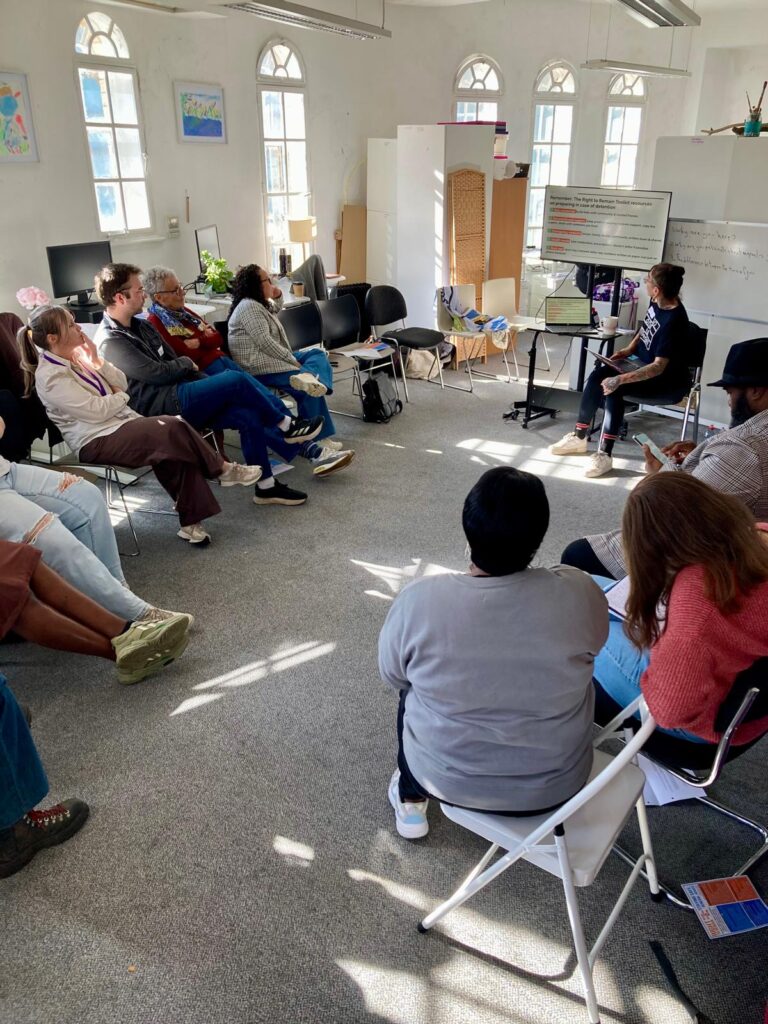
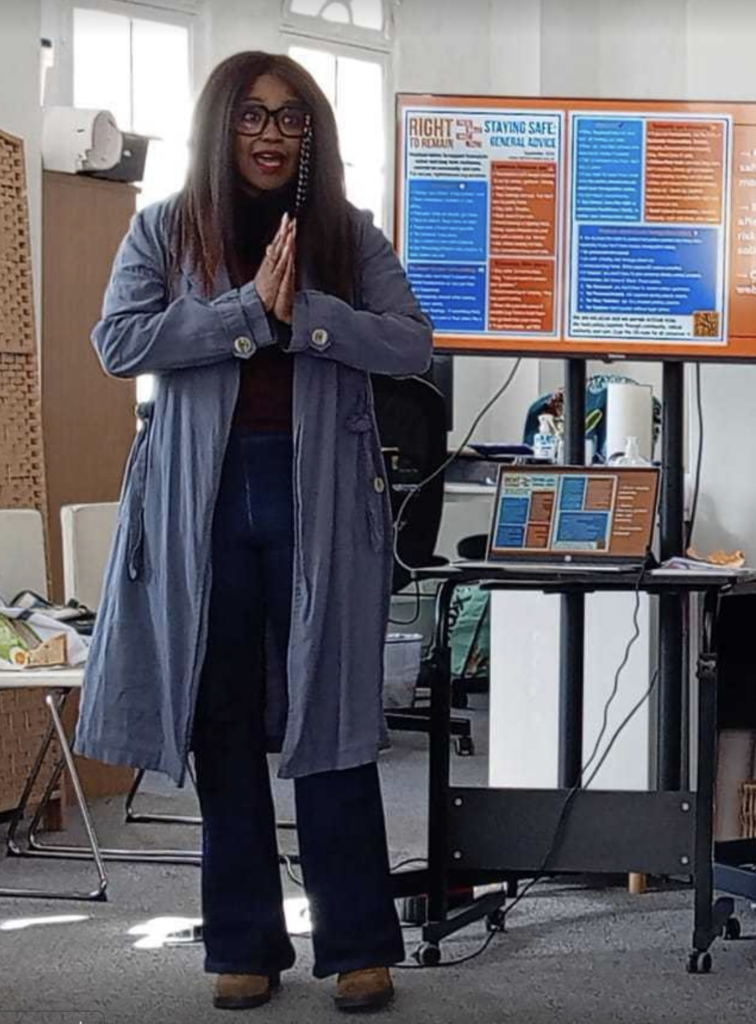
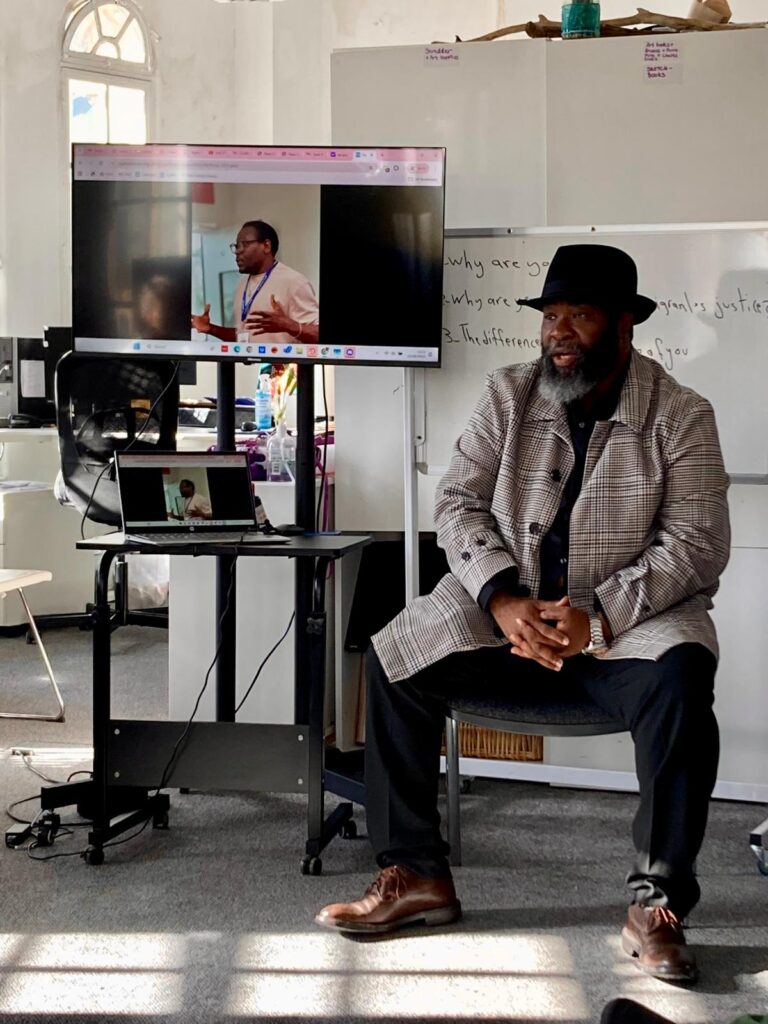

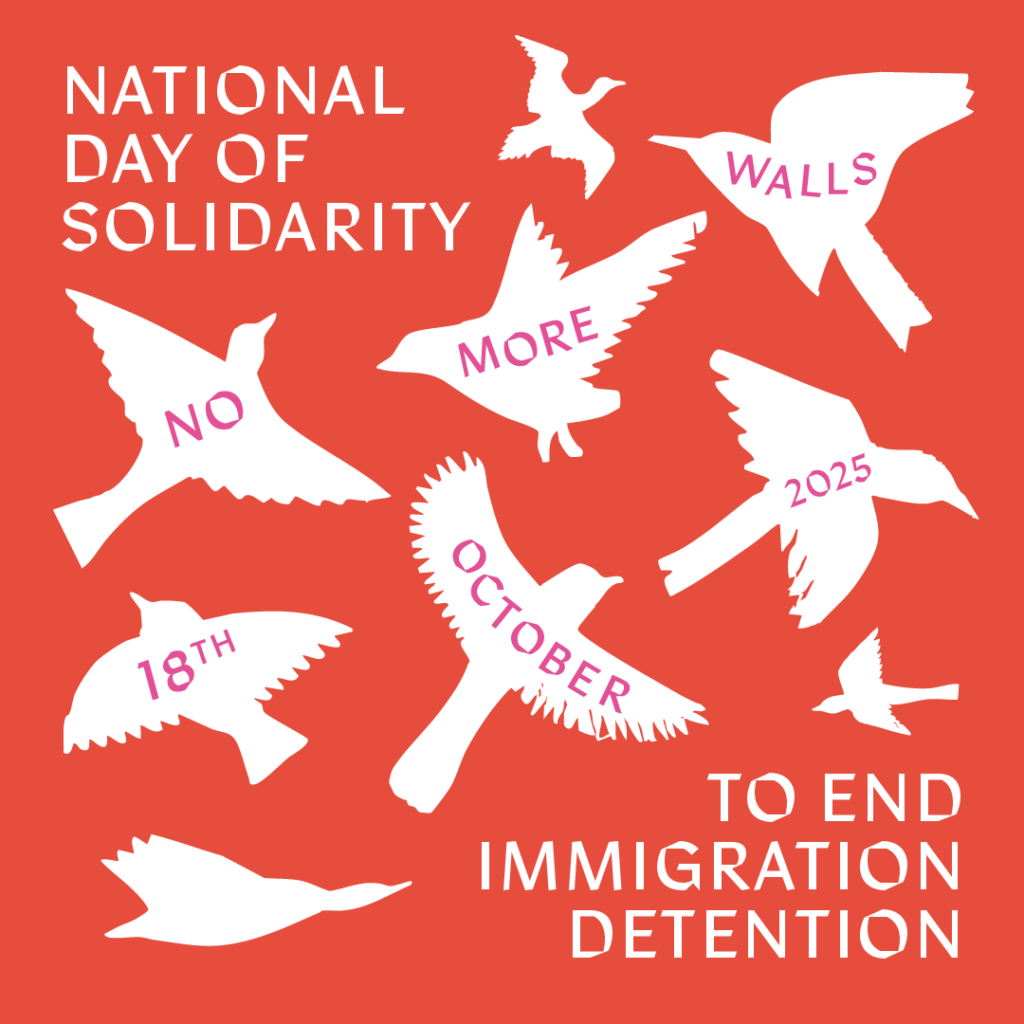












Discussion: